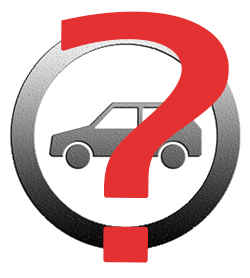Why does my car creak when i turn?
Understanding Why Your Car Creaks During Turns
The unsettling creaking sound every time you maneuver your steering wheel might hint at underlying issues with your vehicle. This concern can range from minor irritations to more serious safety hazards. Let’s explore the potential causes.

Potential Causes:
Worn Out Ball Joints
Ball joints serve as crucial links between the steering knuckles and control arms, enduring constant movement and exposure to road debris. Over time, this wear and tear can lead to their deterioration.
Faulty Suspension Components
Comprising parts like bushings, struts, and shocks, the suspension system plays a vital role in smooth driving. Any damage or wear in these components can generate creaking noises, disrupting the driving experience.
Dry or Worn Out Steering Components
Components – example: tie rod ends, steering rack mounts, and universal joints are prone to wear and dryness over time. Lack of proper lubrication or worn-out parts can contribute to creaking sounds during steering maneuvers.
Loose or Damaged Power Steering Belt
A slack or damaged power steering belt can impede the efficiency of the power steering pump, resulting in steering difficulties and potential creaking noises.
Worn Out Wheel Bearings
Wheel bearings are essential for bearing the weight of the vehicle and ensuring smooth wheel rotation. When these bearings wear out, they can produce grinding or creaking sounds, particularly noticeable during turns.
What to Do?

Addressing creaking sounds during turns promptly is crucial for ensuring safety and preventing further damage to your vehicle. Here are steps to take:
- Inspect Steering and Suspension Components
Thoroughly examine ball joints, suspension bushings, and steering components for any visible signs of wear or damage. If issues are detected, seek assistance from a qualified mechanic for inspection and replacement.
- Check Power Steering Fluid Levels
Verify that your power steering fluid levels are adequate and free from contaminants. Address any low levels or contamination by flushing and refilling the system or repairing leaks promptly.
- Inspect Wheel Bearings
If suspicions arise regarding worn-out wheel bearings, enlist the expertise of a professional mechanic for inspection and potential replacement. Handling wheel bearing issues requires specialized tools and knowledge.
- Prioritize Regular Maintenance
Adhere to the manufacturer’s recommended maintenance schedule for your vehicle, including regular inspections and servicing. Consistent maintenance efforts can help prevent issues like creaking sounds and prolong the lifespan of your car’s components.
Interesting Facts

Creaking sounds during turns can sometimes be mistaken for other issues, example: squealing brakes or worn-out tires. Accurate diagnosis is essential for effective resolution.
Ignoring creaking sounds during turns can lead to further deterioration of your car’s steering and suspension components, posing safety risks on the road.
Modern vehicles often feature electric power steering systems, which can also experience issues contributing to creaking sounds.
Diagnosing and repairing these systems require specialized diagnostic equipment and expertise.












